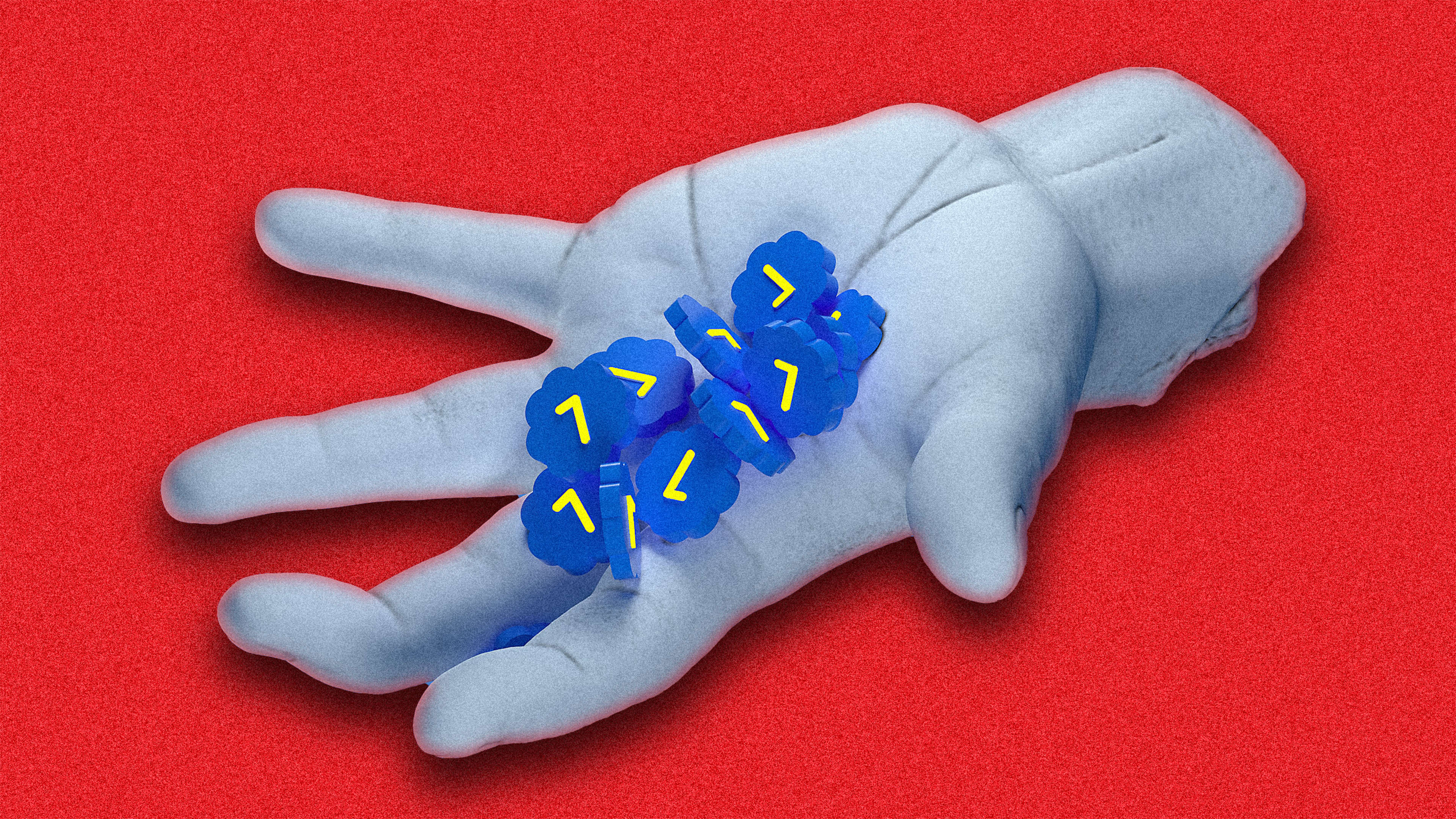A good portion of Elon Musk’s time since the Thanksgiving holiday has been devoted to attacking Apple, and subsequently the national media, for not supporting free speech full-throatedly enough. (He fired off five anti-Apple tweets in just 30 minutes on Monday.) His own commitment to this principle is supposedly demonstrated by his belief that his new Twitter should reinstate accounts, ranging from various neo-Nazis’ to Donald Trump’s, which had been banned for violating the platform’s rules against hate speech, bullying, and discrimination.
The problem is that, in practice, Musk’s commitment to free speech does not seem to extend that far past himself. Some have pointed to his silence on Saudi Arabia, his biggest financial partner at Twitter. But there’s a more glaring paradox: Musk’s stance on the matter in China. He’s eager to expand Tesla’s presence there, in the world’s top electric-vehicle market, which Musk has called crucial to Tesla’s future—in fact, it’s accounted for as much as 25% of the carmaker’s revenues in 2022 earnings reports. That has angered Washington politicians already. (Days after the U.S. enacted the Uyghur Forced Labor Prevention Act in January, Tesla opened a brand-new showroom in Xinjiang, the region with the forced labor camps, leading Senator Marco Rubio to accuse Tesla of “helping the Chinese Communist Party cover up genocide and slave labor.”)
Over the past year, different reports have exposed examples of Western businesses that rely heavily on the Chinese market kowtowing to Beijing—from tech titans like Apple to retail giants like Starbucks—in embarrassing and even alarming ways. These run from negotiating secret deals to actively advancing Communist propaganda. But ironically, the activities for which Musk has been criticized represent some of the most flagrant examples of global business leaders supporting Chinese censorship.
In July, weeks after Musk declared at his first all-hands Twitter meeting, he wrote: “It’s essential to have free speech and for people to be able to communicate freely,” in a little-seen column for the official magazine of the Cyberspace Administration of China, the Beijing agency that censors China’s internet. Musk—the first foreigner to appear in China Wangxin, which had previously only published government officials and leaders of state-owned companies—pitched sustainable energy, his Neuralink brain implants, and the colonization of Mars in a several-page-long spread. “Thank you for the invitation from China Cyberspace magazine,” he wrote, according to a translation by a Chinese reporter. “I am pleased to share with my Chinese friends some of my thoughts on the vision of technology and humanity.”
The Cyberspace Administration of China runs the government’s expansive online censorship regime. It’s been accused of extracting forced confessions from journalists, and has allegedly carried out so-called man-in-the-middle attacks against Apple, Yahoo, Microsoft, and Google. The agency banned over 100 apps from Chinese app stores in 2020 (among them, TripAdvisor) as part of a move to “clean up China’s internet.” Critics have called these efforts a “ferocious assault on civil society.” Under President Xi Jinping, it’s also worked to rein in Chinese tech players’ rising social influence. This has included a crackdown on domestic tech companies that has erased $1.5 trillion from the market values of Tencent, Alibaba, and Ant.
When China Wangxin was ready to publish its first issue last January, the Cyberspace Administration of China announced that the new publication would focus on the “study and application of Xi Jinping Thought on Socialism with Chinese Characteristics for the New Era,” and also work to support “the building of a cyber power.”
Last year, glitches with Tesla’s cars thrust the company to the center of a massive PR nightmare in China. Chinese Tesla owners had begun reporting dangerous vehicle malfunctions, such as brake failures, unexpected acceleration, and battery fires. Tesla was told to recall nearly every car it had ever sold in the country.
Consumers began to stage increasingly visible anti-Tesla protests, leading Tesla to undertake an effort to better control public perception of the brand. The plan it devised reportedly involved the company “complain[ing] to the government over what it sees as unwarranted attacks on social media,” according to insiders who spoke to Businessweek at the time, then “ask[ing] Beijing to use its censorship powers to block some of the posts.”
Meanwhile, back on Twitter in the U.S., Musk has continued his assault on what he claims is Apple’s lack of support for free speech. Around midday on Monday, he tweeted, “Apple has also threatened to withhold Twitter from its App Store, but won’t tell us why,” eliciting a slew of hypotheses in the comments. But the journalist Matthew Yglesias replied, “What’s your take on the protests in China?” China controls billions of dollars of Tesla’s assets—and by extension, a nonzero chunk of Musk’s own fortune—and it routinely leverages its power over foreign companies dependent on the Chinese market to control speech beyond its borders. Yglesias argued there’s “just no way” to support free speech and “also be maintaining massive PRC-dependent manufacturing and sales operations.” Musk replied to other comments, but didn’t respond to Yglesias’s. He and other observers claimed to notice a pattern develop, nonetheless. “The vast majority of the replies are hidden and the exceptions are pro-PRC propaganda,” he wrote in a follow-up tweet.
Recognize your brand’s excellence by applying to this year’s Brands That Matter Awards before the early-rate deadline, May 3.
